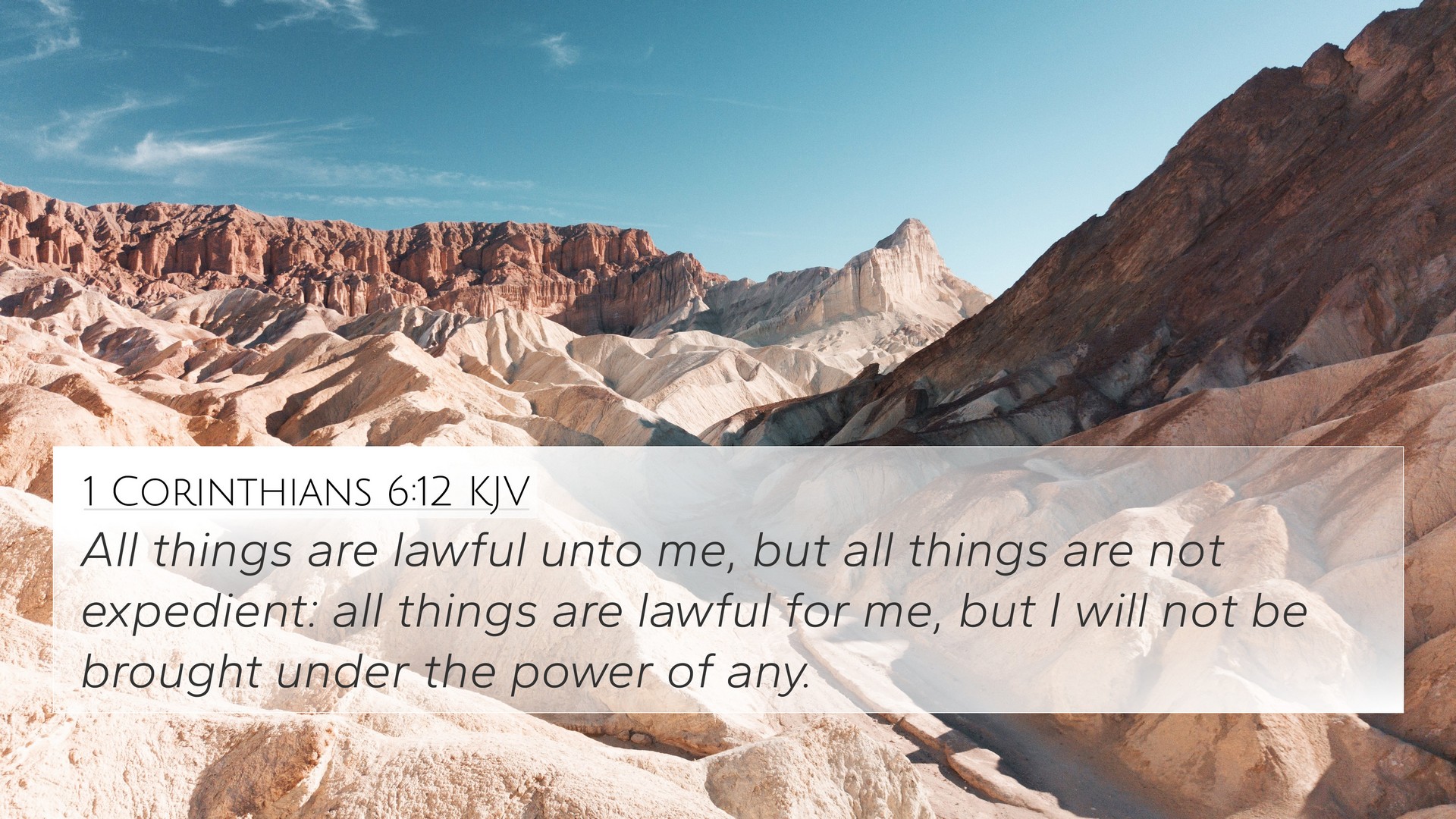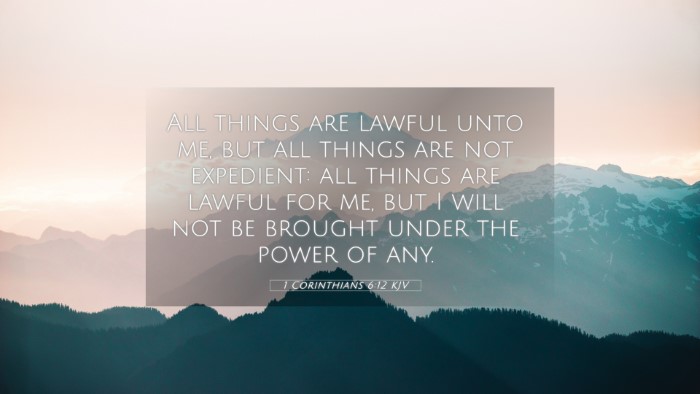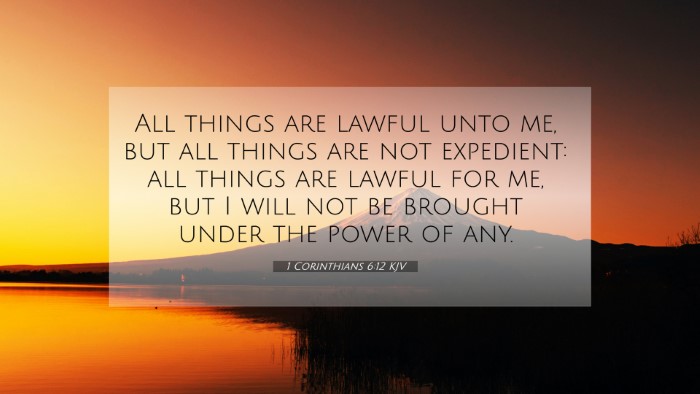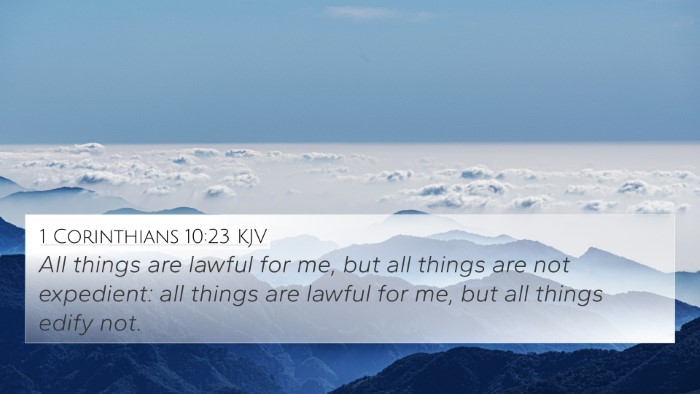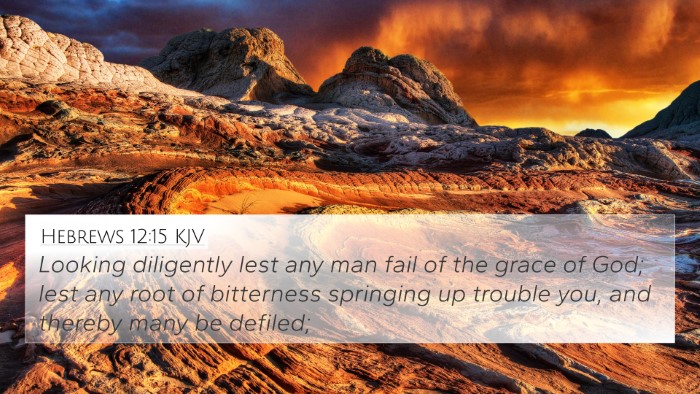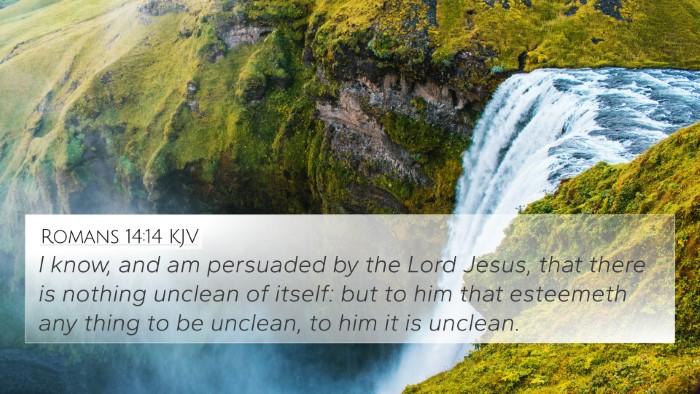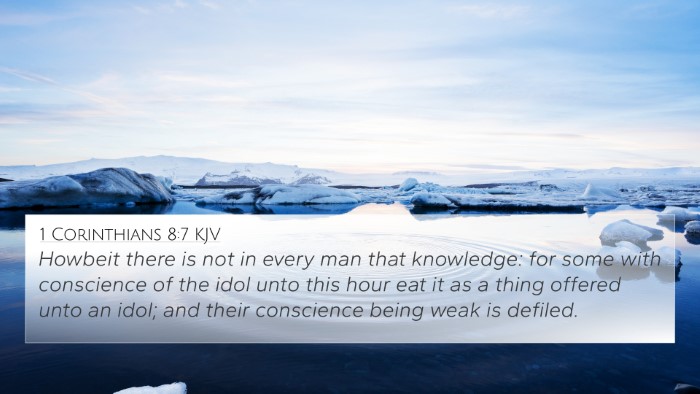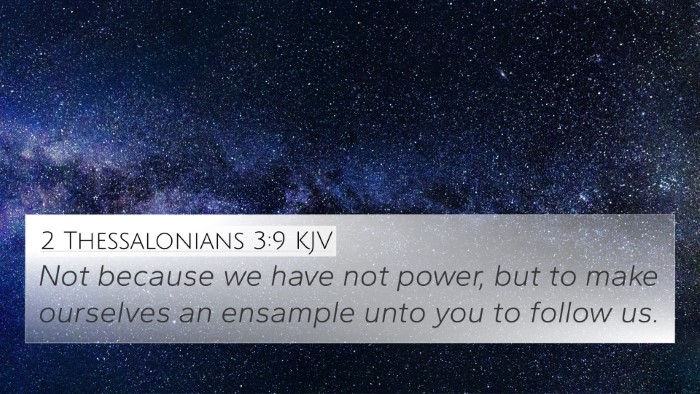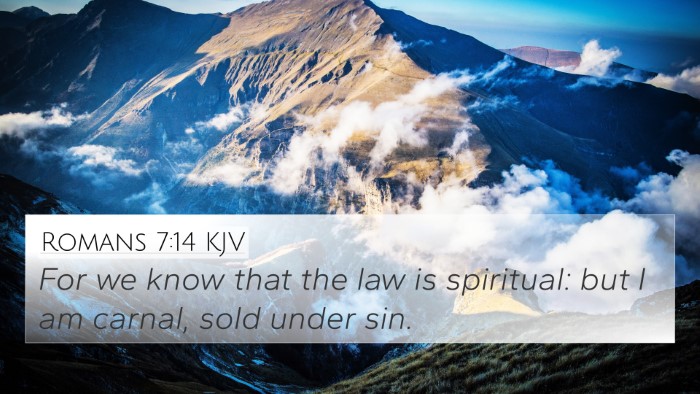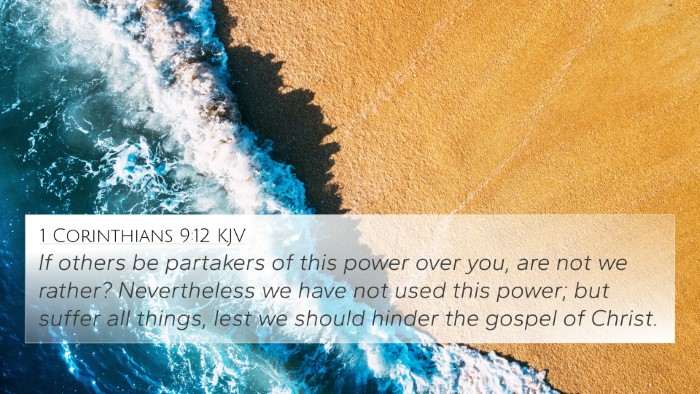In 1 Corinthians 6:12, the Apostle Paul addresses the principle of Christian liberty and the implications of that freedom. The verse states,
"All things are lawful for me, but all things are not helpful; all things are lawful for me, but I will not be brought under the power of any."
This verse can be understood as Paul declaring that while he has the freedom to partake in various activities, not all of them benefit him or others. The underlying theme revolves around the balance of personal freedom and responsibility.
Commentary Insights:
-
Matthew Henry: Henry notes that Paul emphasizes the importance of evaluating our freedoms in light of their effects on our spiritual well-being and the community. While certain actions may be permissible, they should be weighed against their potential to lead one into bondage or sin.
-
Albert Barnes: Barnes elaborates on the idea that Christian liberty should not be an excuse for indulgent behavior. Instead, believers ought to exercise their freedom with restraint, ensuring that their choices contribute positively to their lives and those around them.
-
Adam Clarke: Clarke points out that while the law may declare certain actions permissible, Christians must seek to live beyond mere legality. Instead, they must strive for morality and righteousness that enhance their faith and testimony.
Key Themes Identified:
-
Christian Liberty: The notion that believers have freedom in Christ but must govern their actions wisely.
-
Self-Control: Encouragement to cultivate self-discipline, ensuring that one is not controlled by passions or desires that may lead to harm.
Bible Cross-References:
- Galatians 5:13: Explores the theme of freedom and serving one another in love.
- 1 Peter 2:16: Encourages living as free men, yet not using freedom as a cover-up for evil.
- Romans 14:20: Discusses the importance of considering the impact of one’s liberties on the faith of others.
- Hebrews 12:1-2: Calls for believers to lay aside every weight and sin, emphasizing perseverance in the faith.
- 1 Corinthians 10:23-24: Reiterates the idea that not all permissible things are beneficial, moving into a wider discourse about consideration for others.
- Philippians 4:8: Encourages focusing on whatever is true, noble, right, and pure as part of living in liberty.
- James 1:25: Highlights the importance of not just hearing the Word, but acting on it as true freedom.
Theological Implications:
The theological implications of 1 Corinthians 6:12 extend into various aspects of Christian living, emphasizing the need for believers to navigate their freedoms responsibly. This spans from personal decision-making to communal relationships within the body of Christ.
Practical Applications:
As believers reflect on 1 Corinthians 6:12, it is vital to ask questions about their own liberties. Are their actions fostering spiritual growth? Do they promote love and unity within the community? This self-examination leads to meaningful living aligned with Biblical principles.
Connecting Themes:
The themes in 1 Corinthians 6:12 connect to numerous other Bible verses. For those seeking to understand their Christian freedom through a broader lens, exploring these connections provides a more extensive understanding of Biblical teaching. Believers are encouraged to engage in cross-referencing to deepen their comprehension of freedom and how it intersects with moral responsibilities.
- For example, consider Romans 6:1-2, which addresses the concept of living in sin vs. righteousness.
- Additionally, Colossians 3:5 urges believers to put to death whatever belongs to their earthly nature.
Conclusion:
Overall, 1 Corinthians 6:12 serves as a significant reminder of the balance between liberty and responsibility. By delving into public domain commentaries and cross-referencing with related scriptures, believers can gain profound insights into how to live out their faith authentically and purposefully.
